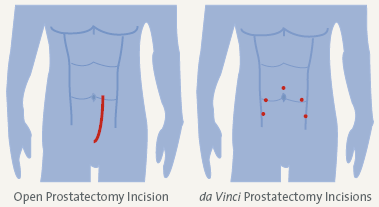The Disease: Prostate Cancer

Prostate cancer is a disease in which malignant (cancer) cells form in the tissues of the prostate. The prostate is a gland in the male reproductive system located just below the bladder and in front of the rectum. It is about the size of a walnut and surrounds the urethra (the tube that conveys urine from the bladder). The prostate gland produces fluid that makes up part of the semen.
In Australia approximately 10,000 men are diagnosed annually with the disease and 2,500 a year die. Many of those alive with prostate cancer also suffer due to spread of the disease.
There are a number of common disorders of the prostate. All can have similar symptoms, which may include one or more of the following:
-
Waking frequently at night to urinate
-
Sudden or urgent need to urinate
-
Difficulty in starting to urinate
-
Slow flow of urine and difficulty in stopping
-
Discomfort when urinating
-
Painful ejaculation
-
Blood in the urine or semen
-
Decrease in libido (sex urge)
-
Reduced ability to get an erection
Most men with early prostate cancer have no symptoms or they may accept the onset of one or more of the above symptoms as being a natural consequence of ageing. However, anyone experiencing any of the above symptoms is advised to consult a doctor. Early diagnosis and treatment is important and may avert potentially serious health consequences.
Treatment options and prognosis depend on the stage of the cancer, the Gleason score, and the patient's age and general health. With greater public awareness, early detection is on the rise and mortality rates are declining.
More information is available from the following highly recommended web site:
Prostate Cancer Foundation of AustraliaOr you can download an information booklet by Cancer Council of Victoria
 Prostate Cancer A Guide For Men, Their Families And Friends (1.11Mb)
Prostate Cancer A Guide For Men, Their Families And Friends (1.11Mb)
The Surgical Treatment: Radical Prostatectomy
The popularity of surgery in this country has grown tremendously in recent years. A study of Medicare patients' records found that the number of men nationwide receiving radical prostatectomy by 1990 was six times greater than the number recorded for 1984, and the increase was seen in all age groups, from the youngest (that is, age 65) to men in their eighties.
Traditional radical prostatectomy requires a large, 5 - 6 inch incision. This open surgery commonly results in substantial blood loss, a lengthy and uncomfortable recovery.

If you have prostate cancer, you need to consider your age and general health before making a decision about treatment. You also need to think about which side effects you can live with. Some men, for example, cannot imagine living with side effects such as incontinence or impotence. Other men are less concerned about these and more concerned about survival.
Treatment decisions are often hard to make by yourself. No written information can take the place of talking directly with your health care professionals. In addition, talk with your family and friends and consider getting more than one opinion. Treatment options include watchful waiting, radiation therapy or surgery.
If surgery is recommended to you for treating your prostate cancer, you may be a candidate for a new, less-invasive surgical procedure called da Vinci ® Prostatectomy. This procedure incorporates a state-of-the-art surgical system that helps Mr. Justin Peters see vital anatomical structures more clearly and to perform a precise surgical procedure.
For most patients da Vinci ® Prostatectomy offers numerous potential benefits over open prostatectomy including:
-
Shorter hospital stay
-
Less pain
-
Less risk of infection
-
Less blood loss and transfusions
-
Less scarring
-
Faster recovery
-
Quicker return to normal activities
As with any surgical procedure, these benefits cannot be guaranteed as surgery is both patient and procedure specific. If you have any questions or doubt about da Vinci ® Prostatectomy, contact us and we will be glad to assist you in your queries.
